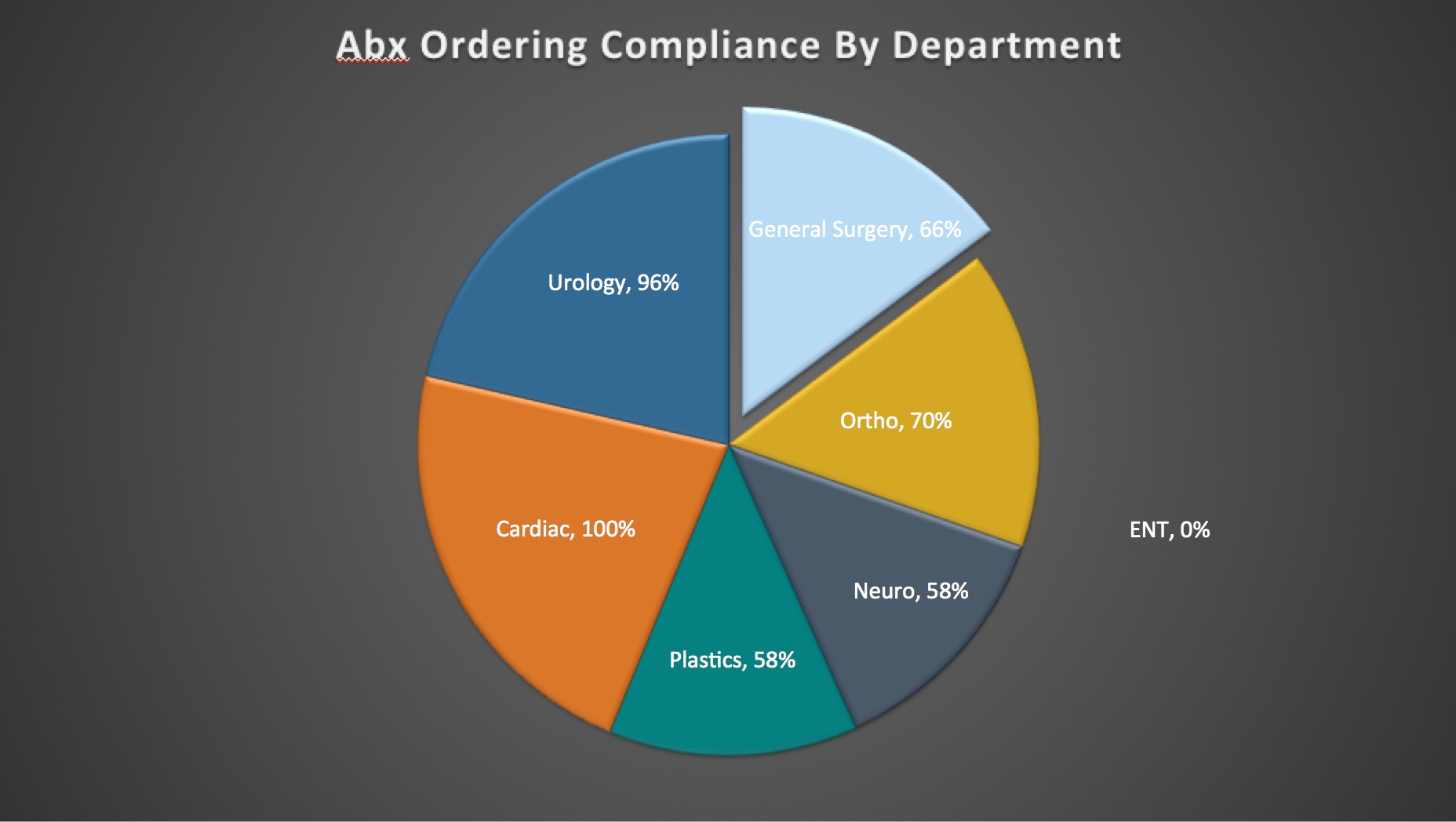NM-258
Preoperative Antibiotic ordering: How can we help our patients and surgeons?
Hesselink E, Stephenson L
University of Wisconsin-Madison, Madison, WI, United states
Introduction: It is now the standard of care to give antibiotics prior to incision. However, at our institution there is not a standard system for preordering the required antibiotics. This leads to distractions and in some cases missed antibiotic administration during induction.
Methods: We collected data on all surgical cases during the month of May 2017. Our anesthesia techs were crucial in administering the daily surveys and collating them. We asked the following questions for each case: 1. Is the case scheduled or emergent? Were antibiotics indicated? 2. Were antibiotics preordered? 3. Were they prepared by pharmacy? 4. If anesthesia had to dilute the antibiotics prior to incision, was it a distraction from patient care?
Results: We found that emergent cases had the lowest compliance. Orthopedics had 33% and Neurosurgery 40% compliance with preordering antibiotics. Scheduled cases had a range of compliance from 58% to 100%. Orthopedics, neurosurgery, and general surgery had the lowest compliance in scheduled cases. Distractions were reported in 30% of cases.
Discussion: Over the past several years, the importance of antibiotic administration prior to incision has become a hospital standard. JACHO tracks this closely and many anesthesia departments use this as an ongoing practitioner performance measure. However, the inconsistency of preordering antibiotics for surgeries coupled with teaching new learners can lead to significant distractions during induction. These distractions include not paying attention to the patient’s vital signs and positioning, computation errors that can result in drug dilution mishaps, or forgetting to give the antibiotics completely.
Our data has enabled us to engage our pediatric surgeons and NPs in a dialogue to improve the preordering of antibiotics for scheduled and emergent cases. We all agree that it is in the best interest of the patient to improve this process.
Conclusion: Antibiotics are often not preordered by surgeons prior to surgery resulting in a non standardized procedure for diluting drugs in the OR by the anesthesia team. This has resulted in missed antibiotics and dilution errors. By tracking the data and presenting it to our surgeons, we hope to improve the process and ultimately patient care.
References:
Persoon et al. The effects of distractions in the operating room during endourological procedures. Surg Endoscopy. 2011 Feb 25 (2): 437
Steffensdottir et al. Inadequate Timing of Antibiotics in orthopedic surgery. We can do better. Acta orthop. 2009 Dec 4; 80 (60): 633
Top













